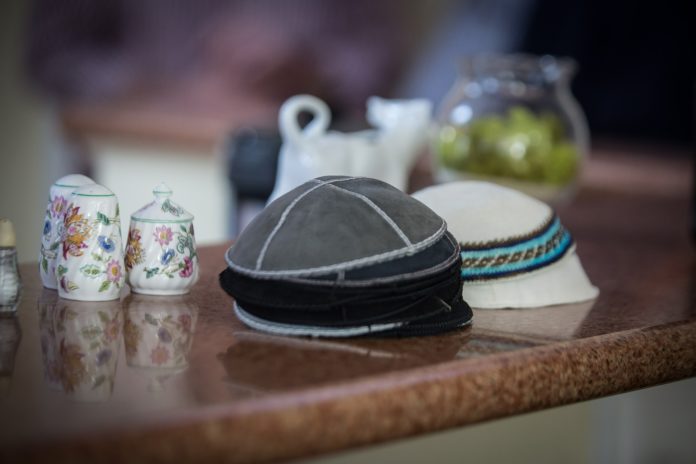
The right for Jews across Europe to openly practise their religion without fear of violence or political condemnation was the main agenda at the European Jewish Association (EJA) 2-day conference in Brussels this week.
Jewish community leaders from across Europe and Israel met with senior European politicians, ministers, MEPs, and ambassadors to help draft a resolution calling on political leaders to sign up to the IHRA definition of anti-Semitism, to support the creation of a dedicated Special Envoy on anti-Semitism in their respective countries, to reject BDS activities as ‘anti-Semitic’ and to pledge support for the freedom of Jewish religious practices and traditions such as Brit Milah and Shechita which are under constant threat in many countries.
The high-profile guest list included the EU’s Special Envoy on combatting anti-Semitism, as well as Israeli Ministry of Jerusalem and Heritage CEO Ambassador Ran Yishai. The conference, which saw some sessions take place at the European Parliament was also attended by many pro-Israel advocacy groups, activists and journalists amongst others.
Opening the conference, Rabbi Menachem Margolin, Founder and Chairman of EJA, an umbrella group of Jewish organizations, said: “To see and hear so many Jews come together at this crucial time fills me with a mixture of hope and concern. I convened the conference so that Jews across the continent could openly discuss their concerns for European Jewry. With Europe at a political crossroads and likely to polarize further away from the parties of the centre after the 2019 elections, the stakes have never been higher. Israel is the only life guarantee for Jews around the world. Jerusalem features freedom of religion. Europe should take Jerusalem as a model.”
He also mentioned how deplorable it was that some politicians had declined to attend the conference because the issue of Jerusalem was discussed.
The conference entitled ‘Jerusalem Day Conference of Freedom of Culture and Religion,’ heard Jewish representatives from several European countries outline the situation in their respective countries regarding the issue of anti-Semitism to over 200 attendees.
A special panel was dedicated to the ”very bad” situation here in Britain. Gideon Falter, chairman of the Campaign Against Anti-Semitism spoke at length about the fact that many Jews are considering leaving the country if Corbyn becomes Prime Minister. ”The Jewish community is very vulnerable and fearful and we need the help and support of other Jewish communities,” he said. He noted that the Labour party refused to condemn the Pittsburgh shooting ”because this would mean to condemn anti-Semitism.”
Conservative MP for Hendon, Matthew James Offord, remarked how the situation in Labour would “never happen” in his own party, and that it simply “can’t be right that in 2018 many British Jews are too afraid to wear their Kippas in public.”
”Corbyn has many followers who control the party. The situation will not change,” David Maddox, political editor at the Sunday Express, and one of the panelists explained.
While a Serbian delegate, Danilo Medic, mentioned that there is ”no organized anti-Semitism” in his country, Nina Tojzner, from the Jewish Youth Federation in Sweden, spoke of rising anti-Semitism which shifted to anti-Zionism, especially in the city of Malmo, where almost all the Jewish population has left.
Sacha Ghozlan, president of the Union of French Jewish students (UEJF), stressed the need to take action against social media platforms that spread hate speech, BDS, conspiracy theories and fake news. “Anti-Semitism is not only the problem of Jews but an issue for the whole of society.”
Organizations to lead various sessions included the European March of the Living project, B’nei Brith Europe, the Simon Wiesenthal Centre, Campaign Against Anti-Semitism, Hungary’s EMIH and Holland’s IPOR, Europe Israel Public Affairs, Christians for Israel, and the Euro-Asian Jewish Congress.
Participants also heard how Israel’s capital city is an example that Europe should adopt when it comes to underpinning, ensuring and protecting freedom of religion for all, despite ongoing European debates over its legal status.
”This conference has been the milestone for continuity of the Jewish life in Europe,” concluded a delighted Rabbi Margolin. For more information on the EJA, and to see how to get involved, go to https://www.ejassociation.eu/ email info@ejassociation.eu or call 00+32 (0) 2-721-1640.









